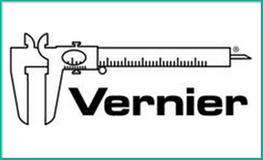
“This year’s winning educators once again demonstrated some truly innovative ways that data-collection technology can be used to teach students about engineering,” said John Wheeler, CEO of Vernier Software & Technology. “We hope that other STEM educators can draw from these best practices as they engage students in hands-on learning in their own classrooms.”
Each winner will receive $1,000 in cash, $3,000 in Vernier technology, and $1,500 toward expenses to attend the 2018 National Science Teachers’ Association (NSTA) STEM conference or the 2018 American Society for Engineering Education (ASEE) conference.
The Winning Projects
Berg created a framework to investigate collisions using the Vernier Dual-Range Force Sensor, a cart and track system, and student-designed, 3D-printed bumpers. Berg aligned the activity with NGSS HS-PS2-3 (Apply science and engineering ideas to design, evaluate, and refine a device that minimizes the force on a macroscopic object during a collision).
Rector asked his students to define a problem facing their school or community and determine a solution. The students used the engineering design process to develop an automated lighting system that activates when someone enters a cross walk in a dark portion of the school's parking lot.
Jen Rushing of Central Coast New Tech High in Nipomo, Calif., was also recognized with an honorable mention. In her project, physics students incorporated the Digital Control Unit and Vernier sensors into the creation of Rube Goldberg machines.
To learn more about the Vernier Engineering Contest and to see videos of the winning entries, visit www.vernier.com/grants/engineering/.
About Vernier Software & Technology
Vernier Software & Technology has led the innovation of scientific data-collection technology for 37 years. Vernier was founded by a former physics teacher and employs educators at all levels of the organization. The company is committed to teachers and to developing creative ways to teach and learn science, technology, engineering, and mathematics (STEM) using hands-on science. Vernier creates easy-to-use and affordable science interfaces, sensors, and graphing/analysis software. With worldwide distribution to over 140 countries, Vernier data loggers are used by educators and students from elementary school to university. Vernier technology-based solutions enhance STEM education, increase learning, build students' critical thinking skills, and support the science and engineering practices detailed in the Next Generation Science Standards (NGSS). The Vernier business culture is grounded in Earth-friendly policies and practices, and the company provides a family-friendly workplace. For more information, visit http://www.vernier.com.












